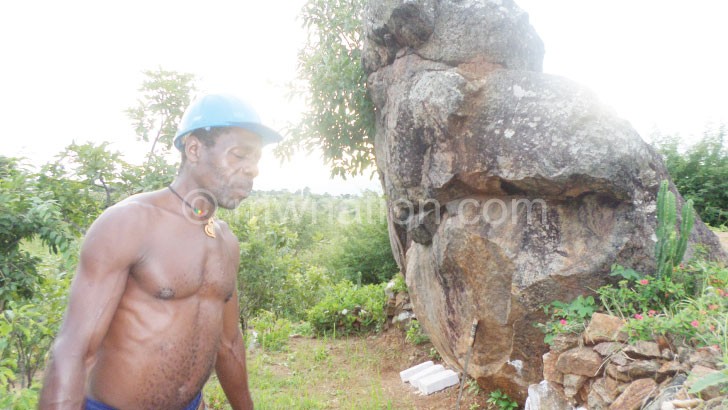Skirting around jotchero
Deviating from the norm remains a punishable offence to this day, but probably the means employed to deal with such today are a little human.
Think of how you would be punished these days for being found with a man or woman you are not married to.
Then fancy this: your society does not allow people having sex before getting married. But you are caught with someone who is not your husband or wife.
The next thing is that, while naked, both of you are paraded in your village streets, with songs that jeer you; whistles from people around you that nearly tear your eardrums.

All you go to is a hill top where you find piles of firewood and a fire glowing from a ditch. Welcome to Jotchero.
You might have heard about the Kadumuliro valley in the Nkhamanga plains, where the deviants barbarically faced justice. Jotchero is something similar.
“Jotchero is a place where those that had contravened the laws would be taken to and justice meted out on them,” says Abel Nyasulu of the Kandewe Community Tourism Project in Rumphi.
“If you were found having sex, for example, the two of you would be paraded in the streets naked. Some would be whipping you; others spitting on you.
“When you reach the place, you would be tied together and set above the fire glowing from a pit. You would not free yourself and, as you struggle trying to free yourselves, those around you would be told that such is how they would also be punished if they found themselves in your situation.”
Julius Mkandawire, a member of the initiative, agrees and adds that the heartless punishment helped mould a society that respected its rules.
He says: “Everybody feared punishments such as this. Therefore, they would not break the law because each time they were mindful that they would end up facing something of a similar nature if they broke the law.
“As a result, society was spared calamities that would befall it because its people disregarded the laws that bound it together. Even the spirits of our forefathers were happy this way because the people were law-abiding.”
Mkandawire says since the spirits were happy with the communities, they would provide everything the communities asked for through prayers and sacrifices to them.
The Jotchero concept has remained although it no longer exists for the purpose it served in those days. Today, Jotchero—though applied in the same way—serves as a mechanism for roasting meat.
“When you kill a cow, for example, you will not cook all the meat at the same time and, usually, you do not have the mechanism to store the fresh meat,” adds Mkandawire.
“Therefore, you dry it by way of roasting on a Jotchero. And such meat is easy to store. This is what the current generation would know Jotchero for, but it was primarily designed to punish people who deviated from society’s norms.”
Nyasulu says the tourism project seeks to set up museums where people would learn about such things.





